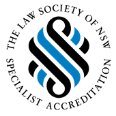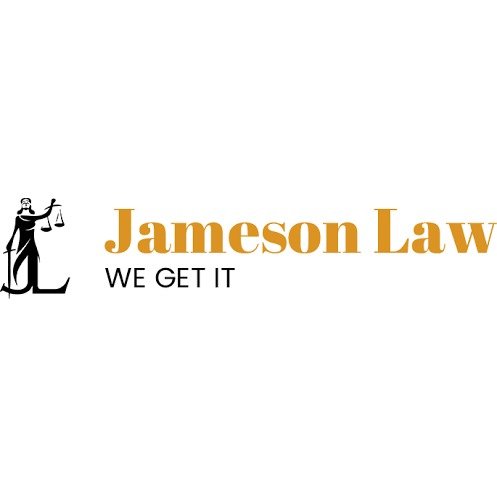
Best Inheritance Law Lawyers in Parramatta
Share your needs with us, get contacted by law firms.
Free. Takes 2 min.
List of the best lawyers in Parramatta, Australia

1. About Inheritance Law in Parramatta, Australia
Inheritance law in Parramatta falls under New South Wales (NSW) state law. It covers wills, intestacy, probate, estate administration, and family provision claims. Wills determine how a person’s assets are distributed after death, while intestacy rules apply when there is no valid will. The Supreme Court of NSW Probate Registry handles probate and letters of administration, with solicitors and barristers providing guidance and representation.
In Parramatta and the Western Sydney region, residents typically engage a local solicitor for estate planning and dispute resolution. NSW-wide rules apply to all suburbs, including Westmead, North Parramatta, and surrounding areas. Key roles include the executor, administrator, and legal counsel who manage applications to the court and estate distribution.
Under NSW law, the distribution of an estate depends on whether there is a valid will. If there is a will, the executors follow its terms. If there is no will, the estate distributes according to intestacy rules set out in NSW legislation. Executors must follow due process, settle debts, and provide beneficiaries with appropriate accounting.
For authoritative definitions and current texts, consult NSW legislation and government resources. See NSW Legislation for the official act texts and LawAccess NSW for practical guidance specific to wills and probate. These sources help Parramatta residents understand their rights and obligations in estate matters.
NSW Legislation • LawAccess NSW • NSW Trustee & Guardian
2. Why You May Need a Lawyer
-
Intestacy in Parramatta - You are the surviving spouse or child and the deceased did not leave a valid will. An inheritance lawyer can identify entitlements under NSW intestacy rules and file the necessary administration documents in the NSW Supreme Court Probate Registry.
-
Probate or administration complexities - You are the named executor and must obtain probate to administer an estate with real property in Parramatta. A solicitor can prepare the court application, gather documents, and handle creditor claims.
-
Challenging a will - You suspect lack of testamentary capacity or undue influence affecting a Parramatta will. A legal counsel can assess grounds for a challenge under NSW law and advise on proper procedure.
-
Family provision claims - A dependent seeks a greater share under the Family Provision Act 1982 (NSW). An inheritance solicitor can evaluate eligibility and represent the claimant in negotiations or court.
-
Complex assets and cross jurisdiction issues - An estate with multiple properties in NSW or overseas requires coordinated administration and tax considerations. A lawyer can manage valuations, distributions, and cross-border questions.
-
Deceased with digital assets - You need guidance on allocating online accounts, digital currencies, and digital estate planning under NSW rules. A solicitor can help structure a practical estate plan for digital assets.
3. Local Laws Overview
Two to three NSW statutes guide inheritance matters in Parramatta, with ongoing amendments to reflect changing family structures and technology. The core acts are:
Succession Act 2006 (NSW)
This is the primary framework for wills, intestacy, and probate in NSW. It sets out who can inherit, how a will is interpreted, and the process for obtaining probate or letters of administration. The Act has been amended over time to clarify eligibility and procedure. For the current text, see NSW Legislation.
Family Provision Act 1982 (NSW)
This Act governs claims by eligible dependants for provision from an estate. It outlines who may claim, what counts as adequate provision, and the processes for making and resolving claims. The Act has seen reforms to broaden or fine tune eligibility in certain circumstances. See NSW Legislation for the latest version.
Probate and Administration Act 1898 (NSW)
This act governs the practical aspects of probate and administration, including forms, fees, and court procedures for granting probate or administration. It interacts with the Succession Act and the Family Provision Act in real-world estate matters. See NSW Legislation for the current provisions.
These laws are applied uniformly across Parramatta and the wider NSW. For the most up-to-date text and amendments, consult the official NSW Legislation site. Additionally, LawAccess NSW provides practical explanations of how these laws affect real cases.
Further references: NSW Legislation • LawAccess NSW
4. Frequently Asked Questions
What is the difference between a will and intestacy?
A will specifies how assets are distributed after death. Intestacy applies when there is no valid will, and NSW law determines the distribution among spouses, children, and other relatives.
How do I apply for probate in Parramatta NSW?
You file a probate application with the NSW Supreme Court Probate Registry. A solicitor guides you through the forms, supporting documents, and deadlines.
How long does probate usually take in NSW?
Time varies by estate complexity. Uncontested matters are shorter, while complex or disputed estates may take many months.
Do I need a lawyer to handle an estate in Parramatta?
A lawyer helps prepare documents, ensure compliance with NSW law, and represent you in court if needed. You can proceed pro se, but legal advice reduces risk of errors.
Can a will be challenged after probate?
Yes, claims can usually be brought if there are grounds such as lack of testamentary capacity, undue influence, or formal defects. Time limits apply.
How does the Family Provision Act affect my claim as a dependent?
It sets who is eligible to claim and the level of provision. An inheritance solicitor can assess whether your relationship and financial needs justify a claim.
Do de facto partners have estate claims in NSW?
De facto partners may qualify for provision under certain circumstances. Legal advice helps determine eligibility and potential remedies.
What documents are needed to apply for probate?
Common documents include the death certificate, the will, an asset list, debts and liabilities, and identification for the executor or administrator.
How much do legal fees typically cost for estate matters?
Fees vary by complexity and region. Fixed-fee arrangements are possible for straightforward probate, with higher costs for disputes or complex estates.
What happens if the executor dies before the estate is settled?
The court may appoint a replacement executor or administrator. A solicitor can help initiate succession procedures for a new administrator.
Is a digital will legally valid in NSW?
NSW recognition of digital wills depends on current law and witnessing requirements. Consult a solicitor for up-to-date guidance on digital will validity.
Can I claim a superannuation death benefit as an heir?
Superannuation death benefits are typically paid to eligible dependants or as dictated by the fund's rules. A lawyer can help coordinate with the fund and estate distribution.
5. Additional Resources
- NSW Trustee & Guardian - Official NSW government body providing estate administration, guardian services, and trust management. Website: tag.nsw.gov.au
- LawAccess NSW - Free legal information and referral service for NSW residents, guiding wills, probate, and estate matters. Website: lawaccess.nsw.gov.au
- NSW Legislation - Official text of NSW laws including Succession Act 2006 and Family Provision Act 1982. Website: legislation.nsw.gov.au
6. Next Steps
- Gather essential documents: death certificate, original will (if any), asset details, and debts. Do this within the next 1-2 weeks.
- Schedule a consultation with a Parramatta inheritance lawyer to assess options. Aim for 1-3 weeks after collecting documents.
- Determine whether probate or letters of administration are required. This typically takes 1-3 weeks after consultation.
- Choose a solicitor or legal counsel experienced in NSW estates and prepare the necessary forms. Allow 2-6 weeks for preparation depending on complexity.
- File the probate or administration application with the NSW Supreme Court and provide supporting documents. Expect a processing period of several weeks to months depending on case load and disputes.
- Administer the estate according to the court orders and distribute assets. This phase varies with asset types and complexity, often 1-6 months or longer if disputes arise.
Lawzana helps you find the best lawyers and law firms in Parramatta through a curated and pre-screened list of qualified legal professionals. Our platform offers rankings and detailed profiles of attorneys and law firms, allowing you to compare based on practice areas, including Inheritance Law, experience, and client feedback.
Each profile includes a description of the firm's areas of practice, client reviews, team members and partners, year of establishment, spoken languages, office locations, contact information, social media presence, and any published articles or resources. Most firms on our platform speak English and are experienced in both local and international legal matters.
Get a quote from top-rated law firms in Parramatta, Australia — quickly, securely, and without unnecessary hassle.
Disclaimer:
The information provided on this page is for general informational purposes only and does not constitute legal advice. While we strive to ensure the accuracy and relevance of the content, legal information may change over time, and interpretations of the law can vary. You should always consult with a qualified legal professional for advice specific to your situation.
We disclaim all liability for actions taken or not taken based on the content of this page. If you believe any information is incorrect or outdated, please contact us, and we will review and update it where appropriate.









